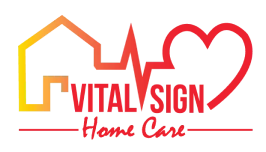Recovering from a traumatic brain injury (TBI) is a complex and challenging journey, but the right support can make all the difference. For many individuals and families in Maryland, in-home traumatic brain injury care in Maryland offers a pathway to healing, independence, and improved quality of life. Whether you or a loved one needs ongoing assistance after a TBI, home-based care provides the personalized support necessary for a smoother recovery.
Understanding Traumatic Brain Injury and the Need for Home Care
A traumatic brain injury (TBI) occurs when a sudden impact or force disrupts normal brain function. The effects can range from mild concussions to severe brain damage, often leading to long-term cognitive, physical, and emotional challenges. Individuals recovering from TBIs require comprehensive care, including therapy, assistance with daily tasks, and emotional support.
For many families, the best way to facilitate TBI recovery support near me is by ensuring that care happens in a familiar and comfortable environment. Baltimore neurological injury caregivers specialize in providing customized, in-home care that helps individuals regain their independence while staying close to their loved ones.
The Benefits of In-Home Traumatic Brain Injury Care in Maryland
Personalized Rehabilitation Plans at Home
One of the biggest advantages of Maryland brain injury home care programs is the ability to create personalized rehabilitation plans at home. Unlike hospital settings where care is generalized, in-home care allows for tailored rehabilitation strategies that align with the individual’s specific needs and progress.
- Customized physical and occupational therapy
- Cognitive exercises to enhance memory and focus
- Emotional and psychological support
Comfort and Familiarity
Being in a familiar home setting can significantly improve the recovery process. Patients recovering from TBIs often experience confusion and anxiety; staying at home minimizes stress and promotes emotional well-being.
One-on-One Attention
Unlike care in a facility, where attention is divided among multiple patients, in-home caregivers provide focused, individualized care. This means quicker response times, personalized treatment adjustments, and a more compassionate approach.
Support for Daily Living Activities
From meal preparation to personal hygiene, in-home traumatic brain injury care in Maryland ensures that TBI survivors receive the help they need with daily activities, reducing frustration and fostering independence.
Family Involvement and Education
In-home care allows families to remain actively involved in the recovery process. Caregivers educate family members on how to best support their loved one’s rehabilitation, strengthening the support system at home.
What to Expect from Maryland Brain Injury Home Care Programs
When choosing TBI recovery support near me, it’s essential to select a service that offers comprehensive care tailored to TBI patients. Here’s what you can expect:
Skilled and Compassionate Caregivers
Baltimore neurological injury caregivers undergo specialized training to handle the unique needs of TBI patients. They assist with mobility, medication management, cognitive stimulation, and emotional support.
Regular Health Monitoring
Recovery is an ongoing process. Home care professionals track progress, adjust rehabilitation plans, and communicate with healthcare providers to ensure optimal recovery outcomes.
Safety Assessments and Fall Prevention
TBIs can increase the risk of falls and further injury. Caregivers perform home safety assessments and recommend modifications to create a secure living environment.
Speech and Cognitive Therapy
Many TBI survivors struggle with communication and memory. Home care programs integrate personalized rehabilitation plans at home, focusing on speech therapy, cognitive exercises, and problem-solving skills.
Finding the Right In-Home Traumatic Brain Injury Care in Maryland
If you’re searching for TBI recovery support near me, consider the following factors to ensure you choose the right provider:
- Experience with Maryland brain injury home care programs
- Licensed and background-checked caregivers
- Customized rehabilitation plans
- 24/7 availability and emergency support
- Positive reviews from other TBI patients and families
The Role of Family and Caregivers in TBI Recovery
Recovering from a TBI is not a solo journey. Family members play a crucial role in supporting their loved one’s healing process. Here are some ways caregivers and families can assist:
Encouraging routine and structure
Predictable schedules help TBI patients feel more secure.
Providing emotional support
A positive environment fosters recovery.
Engaging in brain-stimulating activities
Reading, puzzles, and discussions enhance cognitive function.
Attending therapy sessions
Active participation helps reinforce progress made in rehabilitation.
Conclusion: Start the Recovery Journey Today
When it comes to in-home traumatic brain injury care in Maryland, choosing the right support system is crucial for recovery. With Baltimore neurological injury caregivers and personalized rehabilitation plans at home, TBI patients can experience a more comfortable and effective healing process. If you or a loved one is seeking professional home care, don’t wait—explore Maryland brain injury home care programs today and take the first step toward recovery.
FAQs
What services are included in in-home traumatic brain injury care in Maryland?
In-home TBI care includes rehabilitation exercises, daily living assistance, cognitive therapy, mobility support, and emotional counseling, all tailored to the individual’s needs.
How do I find reliable Baltimore neurological injury caregivers?
Look for licensed home care agencies with experience in TBI rehabilitation, verified caregiver credentials, and positive client testimonials.
How long does recovery from a TBI take with home care?
Recovery time varies depending on the severity of the injury, the individual’s response to therapy, and the quality of care received. A structured home care plan can significantly improve rehabilitation outcomes.
